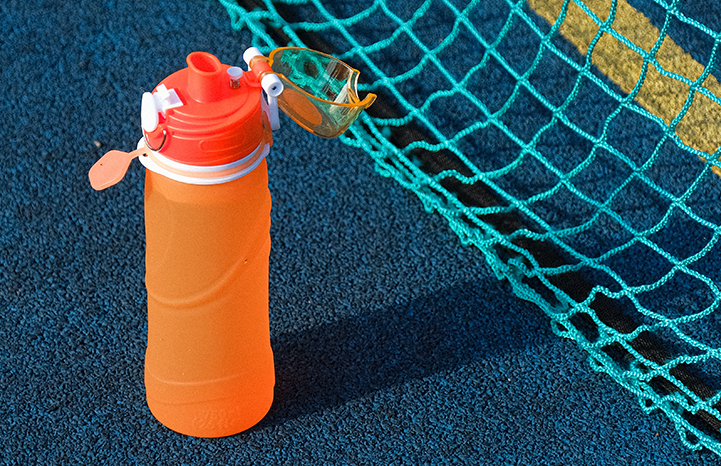TENNIS
Tennis primarily consists of multiple high intensity efforts with variable periods of recovery between points and sets. The length of points and matches can be highly variable. The level of aerobic endurance is also variable depending on whether a singles or doubles match is being played. Regardless of playing style, tennis is highly reliant on anaerobic energy systems with overall general aerobic conditioning needed for stamina and a quick recovery between points.
Jennifer DeWall RDN, CSSD, LD
Jennifer works with ICYF to provide expert advice on sports nutrition and healthy eating to the student and families of Indianola. A registered dietitian/nutritionist, Jennifer owns a private practice that focuses on helping athletes stay on the cutting edge with superior nutrition.
Nutrition Recommendations for Tennis Players
Consume carbohydrates during play.
Depending on the style of play (doubles versus singles) taking in some form of carbohydrate during matches and practices may be necessary. Carbohydrate in the form of sports drinks or gels during matches will provide additional fuel for muscles and cognition. However, figuring out your pre-game intake may be difficult given the length of play being unknown. To avoid fatigue:
- Do not wait until you start feeling tired to have any carbohydrate containing food or fluid.
- Consume 20-60 grams carbohydrate for each hour of play with intake starting within the first 30 minutes.
- Sports drinks provide the opportunity for players to meet their fuel and fluid requirements simultaneously.
- Other options may include bananas, crackers, dry cereal, pretzels and sports gels/bars

Refueling Post Match
For adequate recovery of muscle glycogen stores tennis players should consume a snack within 30 minutes of play. This is especially critical with tournament play or when players are expected to compete on consecutive days.
| Snacking Tips to Refuel & Recover |
|---|
| If you do not plan to eat a meal within 30 minutes a snack is necessary. |
| Select a snack that provide between 0.5-1.0 grams of carbohydrate per kilogram of body weight and 10-20 g of protein. (1) |
| Examples include: yogurt, peanut butter or cheese sandwich, low-fat chocolate milk, meal replacement drinks, dry cereal mixed with dried fruit and soynuts. |
| A detailed snack list can be found on the ICYF “On the go Snacks for Athletes” guide. |
STAY HYDRATED
Hydration before, during and after training and game-time should be well planned, especially given the typical summertime climate. Drinking large amounts of water in the minutes beforehand is not an optimal way to hydrate and can leave you with a “sloshy” stomach in the opening minutes of play. Dehydration (2-3% loss in body weight (1) or just a bit over 3 pounds for a 165-pound player) can slow pace and decrease reaction time. Players should sip small amounts of fluid during training and regularly throughout the day.

HYDRATION TIPS
• Start hydrating about 4 hours before practice or competitions so that you are able to excrete any excess fluid as urine before you compete.
• If you are training for 60+ minutes, sip 4-6 ounces fluid every 15 minutes. A sports drink may be necessary.
• On days where you are training intensely, for every pound lost, replace with 24 ounces of fluid.
• Carry a water bottle with you during the day to help achieve your fluid goals. One sip of water is equal to about 1 ounce.
Hydration during practices and games is also critical. If you are playing for more than 60 minutes then a sports beverage may be needed. Sports beverages can allow you to keep your blood sugar levels within normal limits to allow for immediate energy and split-second decision making. Your brain relies on glucose for its primary fuel source. Without (glucose,) your blood sugar can drop and cause impaired mental acuity.
In order to play at your optimal level, clean eating, a healthy weight and hydration are your secret weapons to winning. For more information or a personalized plan, work with a registered dietitian/nutritionist that is board certified in sports dietetics.
References
1. Australian Government. Australian Sports Commission. www.ausport.gov.au October 2013.
2. Position of the American Dietetic Association, Dietitians of Canada, and the American College of Sports Medicine: Nutrition and Athletic Performance. Journal of
the American Dietetic Association, March 2009, Volume 109 Number 3 p. 509-522.

